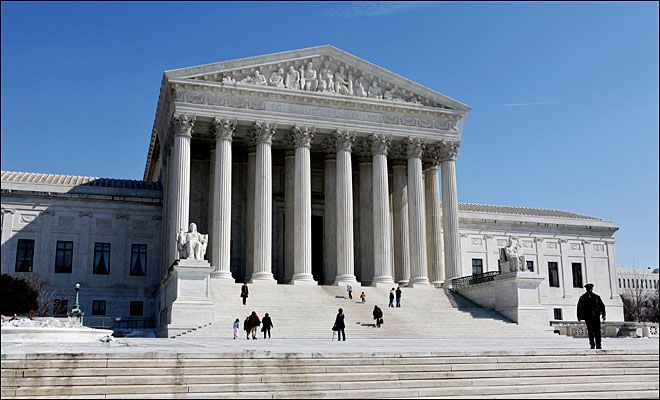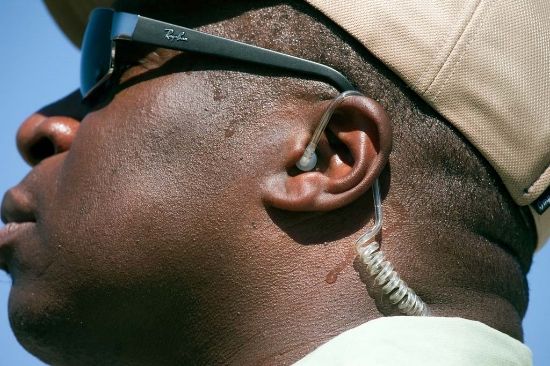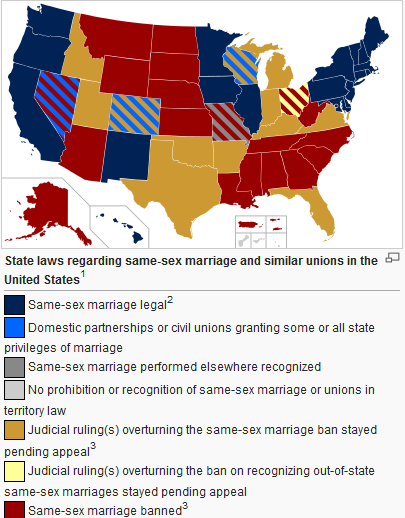Last year the woman I loved was found murdered in the street where she lived. A week later on All Souls’ night I stood on the top step of a church and looked down at the people in the street holding candles for the “Take Back the Night” vigil. Wondering if her killer might be among them, I thought, “I’ll find you, whoever you are. However long it takes, I’ll find you.”

How do you track down someone who killed and got away with it?
“No, Elspeth, absolutely not, it’s too dangerous! I can’t let you do this!”
My beloved Brianna-Hestia stared at me, aghast.
I took her hands in my own and looked straight back at her. “This is something I must do, my love. Until Serena’s killer is brought to justice, the shadow of her death will always hang over us. And if I can find him and put him away you and every other transgendered woman in this town will feel safer.”
Brianna’s dark eyes were filled with doubt. “Are you sure about that? Just suppose you do find him and get him arrested. There’ll always be another killer out there, filled with hatred of people like me.”
I squeezed her hands. “You know we’re about to launch a combined public relations and education campaign to tell people that transwomen and transmen are just like anyone else. There’s even a television series starring a transgendered woman in the works! Remember the TV show, “Will and Grace”? After it started airing, people became more and more accepting of the gay community.”
“Yes, but will it work the same way for the transgendered? Somehow I doubt that a TV show is going to overcome the prejudice against us.”
“Look,” I said, “Someone said that if you keep a giraffe locked up and only show it to the village once a year it remains a curiosity. If you parade the giraffe up and down Main Street every day it becomes part of the scenery. We’ll keep at it with TV shows, YouTube videos, comic books, posters, whatever, until understanding drives out hatred. But for the moment I have to concentrate on finding Serena’s murderer.”
Brianna raised her eyebrows and exhaled a soft breath of laughter. “I hardly see how you’re going to find him when the police haven’t. Really, I don’t know why I’m worried!You’re looking for a needle in a haystack.”
“There’s always magick,” I said with a shrug. “Magick and strong willpower. The police weren’t as motivated as I am.”
And we left the discussion at that.
It was a slack time at the office for me. I’m a lawyer affiliated with the Pitman-Porter Clinic, an organization that treats AIDS patients and offers members of the gay, lesbian, bisexual, and transgendered community legal support as well as medical care and a variety of other services. I loved my work and felt fulfilled by it, but as I said, for some reason the summer slump had lasted well into September.
So I had time on my hands, enough time to leave the clinic’s cramped little office where I worked alongside the other staff lawyers, and take to the streets. On a slow Friday morning I began with my contact on the city police force, an officer I’ll call Anil to safeguard his privacy. He’s sympathetic to the GLBT community and to those, like me, of the Pagan persuasion.
He met me in a pocket-sized park; we sat on a bench while he ate his lunchtime sandwiches. Between bites he said, “I’ve reviewed the case file as you asked. The coroner determined that the time of death was approximately midnight. She was shot through the heart with a Glock 17. There are umpteen thousands of those in this city. And as far as we can tell, nothing was taken from the body, not even her ID.”
“She didn’t drive,” I said. “What kind of ID did she have?”
“A company security badge. We checked and she was a contractor at the company where she worked, not a full-time employee, so her badge was green instead of white.”
I knew Serena had been a member of the 21st-century “precariat,” meaning she had no hope of a permanent job with benefits despite possessing extensive experience and a wide range of skills. As a contractor, she created Web sites for various companies. Of course she didn’t get any benefits, so for health insurance she worked at a local grocery store three nights a week. The store’s union provided medical benefits that she’d hoped to use for her transition. But of course, working three nights a week meant that she had gone home late, and Serena usually walked home to save money. I sighed. Alone, unprotected–she’d been a prime target for the killer.
“Anything else? No DNA evidence of course, since there was no assault.”
“There was one thing of interest,” Anil said. “The weapon that killed her was the same type that killed two other transwomen in the city last year. One of the murders was in February and one in July. They’ve never been solved either, and both, as far as we can determine, happened late at night. And all three occurred in the street outside the residences of the victims.”
“So,” I said slowly, “we’re looking for someone who hates transwomen. Someone who is out and about late at night, someone who owns a Glock and uses it with precision, and above all, someone who is clever enough not to get caught.”
Anil and I talked until he finished his lunch and I’d drunk my coffee. We got up, threw our disposable cups and wrappers into the trash bin, and parted. He warned me, of course, that if I actually succeeded in tracking down the killer, I was not to take vigilante action.
“Of course not,” I protested. “I’m a lawyer. I just want a confession, which I intend to record and use as evidence in court. I want him brought to justice.”
After my meeting with Anil I mulled over what I knew. The murders had taken place late at night, which indicated that it was someone who was part of the city night-time scene. The police had checked to see whether Serena’s daytime employer knew of anyone who had a grudge against her and come up with nothing. The contract employees all worked against client deadlines and had little time for office gossip or socializing. At the close of business they escaped thankfully to their private lives.
Deciding not to waste time on that line of inquiry, I concentrated on a more promising one. The next chance I had to investigate came after dinner on a Thursday night. I told my beloved that I wanted to go to the grocery store where Serena had worked.
“Be careful, love,” Brianna said. “Please don’t stay out too late. I’m going to stay home and work on our wedding dresses.”
Brianna, like her matron Goddess Hestia, excelled in all the domestic arts. She was sewing a simple, straight, floor-length dress of gold brocade for herself and a matching dress of sea-green brocade for me. “Matches your eyes,” she told me when I chose the color after insisting that I didn’t want namby-pamby pastels or white. Indeed, I was only wearing a dress on our handfasting day to please her; my normal attire was a trouser suit for court appearances, or jeans, shirt, and blazer for regular workdays.
I dropped a quick kiss on her cheek and headed out, making sure that I had a flashlight, a can of Mace if I needed it, and my cell phone.
At the store I collected a few small items, and as I paid for them at the checkout counter I fell into conversation with the clerk.
“Do you remember a woman who used to work here? Her name was Serena,” I said.
The woman’s face changed expression. “Yes, I remember her, the poor thing. We all felt terrible when we heard what happened.”
“Yes,” I said. “I knew her from the soup kitchen, have you heard of it? It’s called The Pot on the Fire.”
“Oh, yes,” the clerk said. “Yes, she told me she worked there one night a week. Of course, mostly after work she’d go get a cup of coffee at Deano’s cafe in Adams Morgan.”
“Goodness,” I said. “That would have made her late getting home, wouldn’t it?”
“Yes. But she told me she didn’t have to be at her day job until ten in the morning, so she could afford to stay out late.”
“H’mm,” I said. It was hard to pretend only casual interest when every bit of information was vital. After she handed my purchases over in a small bag, I said, “Was she well liked by everyone here?”
“Oh, yes, by everyone. At least, that I know of. She was so sweet, you see. She’d do any little thing you asked. We were all sorry we couldn’t go to the funeral. Did they ever find out who did it?”
“No, unfortunately. Well,” I said, turning to go, “Good night.”
As I walked away I decided I would go to Deano’s soon, but in disguise.
As I lay beside Brianna in bed that night, listening to the soft breathing that meant she was asleep, I thought about what I had learned. Deano’s was in a street filled with lively restaurants that offered music as well as food. People were known to hang out there until the wee hours of the morning. There had even been a few fights–luckily, none ending in fatalities–that had caused the police to intervene and had duly been reported in the local newspaper’s City section.
My disguise involved looking like a hippie, or at least a wild child. I unbraided my hair, letting it flow loosely past my shoulders, put a fillet round my head, and asked Brianna to put heavy makeup around my eyes. Normally I wore nothing except powder and lip gloss, but it was necessary to look slightly raffish. Brianna rummaged through her closet and found an ankle-length broomstick skirt, a woven top of many colors, and a fringed shawl. I added a patchwork bag my grandmother had given me while I was still in college, and carried a guitar. I could play a little, just well enough to accompany the folk songs I liked, but my playing would never have fooled a real musician.
In disguise I took the Metro to the stop closest to Deano’s, then strolled into the café, looking as world-weary as I could. I ordered an espresso, then sat down at a table in the corner. It was 11 p.m., so the musicians who’d played earlier in the evening had knocked off work for the night. Staff were polishing the tables, sweeping the floor, and wiping down the vinyl cushions of the booths. I played a few chords on my guitar, occasionally sipping my coffee and gazing off into the distance, giving the impression that I was immersed in my own thoughts.
Nothing happened that night. In fact I visited Deano’s three times before my little act produced any promising results. On my third visit I was sitting in the corner as usual, strumming a few chords and looking thoughtful when two men who’d been drinking coffee in one of the booths and talking in low voices came over to speak to me.
“Haven’t seen you here before,” the younger, shorter one said. “You new in town?”
“Kind of.” I gave a careless shrug. “I’m visiting relatives in D.C.”
The older one, a lean, dark man with hard eyes, gave me a grimace that was probably meant to be a smile. “You shoulda come in earlier. We had the Graffiti Gang band playing here tonight.”
“You with a band or group?” the younger one asked.
“No, I just fool around with music, really. What do you guys do?”
During the half-hour of conversation that followed I learned that the younger one worked as a letter carrier during the day but aspired to be a rapper, and the older one was a drummer in a band that played Tuesdays through Saturdays. Tonight, a Monday, was one of his nights off. “Come see me play,” he invited. “We play at the Roof of the World on Tuesday nights, starting at eight.”
I nodded. “I’ll do that sometime. Nice to meet you guys. See you around.”
With that I got up and left. I could feel their eyes on me as I walked out. The younger one, Deon, I discounted; I’m a pretty good judge of people, having been a lawyer for the last ten years, and in my view Deon was not the killer type. But Pete was a different story.
When I went a few days later, still in my hippie guise, to hear Pete’s band at the Roof of the World, he saw me in the audience. At the intermission he came over to speak to me. “Recognized your long blonde hair. Wondered when I’d see you,” he said. “How ya been?”
“Okay,” I said with a shrug. I wanted to give the impression that I didn’t care much about anything and wasn’t terribly interested in the world at large, even to the point of appearing a little standoffish. “You guys are good,” I allowed, as one conferring a gift.
“You wanna go out some evening?”
“Okay. What did you have in mind?”
Whatever it was, I was determined to meet him somewhere far away from where I really lived. Also, I wasn’t going unarmed: I would put a knife in one of my boots and choose my clothes very carefully in case he got violent. I’m really good at judo, but it wouldn’t do to be hampered by voluminous skirts if I got into a fight.
We met at a nightclub. When he wanted to dance I groaned inwardly but as I was playing the “hard-to-get girl,” I had to agree to it. He held me so closely I almost gagged but managed to keep my composure.
Later, outside the nightclub he suddenly grabbed me and kissed me. I wrenched away. “Too early for that, Pete.”
“You seem like a nice girl,” he said. “You’re so tall at first I took you for a tranny.”
“What?” I yelped, pretending outrage.
He laughed unpleasantly. “I know you’re not one. I can tell.”
“Wouldn’t you like me if I were one?” I looked at him archly, pretending to be flirtatious.
“Hell no. If you were, I’d just as soon–hey, I’ve got to go.”
“Me too,” I said. “I see a Metro station down the street.”
“Okay. See you around?”
“Sure,” I said, “I had a nice time. See you.”
Actually, I had no intention of ever seeing him again in this particular disguise. For the next phase of my plan I’d hire a private detective.
___________________
Anil recommended a private detective named Luke Hansen, who’d worked with the city police in the past. I contacted Hansen, met him at a Starbucks, and told him what I wanted. He agreed to take the job and report to me in a week.
But I wasn’t going to sit around waiting for the results of his investigations; I had work of my own to do. First, I intended to do a ritual.
“Which Goddess will you invoke?” Brianna asked nervously. “Please tell me you’re not going to do dark magick!”
“Of course not,” I said, annoyed. “I’m going to invoke Ma’at. She was the Egyptian deity of cosmic order, truth, balance, and justice. The truth is what I’m seeking–the truth about who killed Serena. And I want him served with justice, by which I mean arrest, trial, and life imprisonment. That will restore the karmic balance.”
Brianna looked relieved. “Oh, good. I was afraid you were going to invoke Her Whose Name Must Not Be Spoken and all kinds of horrible things would happen afterwards.”
“I know better than that,” I said. “Ma’at is the Goddess of justice, and that’s all I want. Simple justice. Now, if you’ll help me, that would be great. Do you have an amethyst? And I need a feather, either an ostrich feather dyed red or the feather of a vulture. The vulture was sacred to Ma’at.”
“I have a turkey vulture feather my friend in California sent me,” Brianna said. “I’ll get it for you. It’s in my box of ritual tools.”
In the ancient Egyptian religion, Ma’at weighed the heart of the newly deceased person on one of a pair of scales; the other held a feather from her headdress. If the deceased had lived a good life, the heart balanced perfectly against Ma’at’s feather; if he or she had committed evil deeds the heart would weigh heavier than the feather and would be eaten by the Goddess Ammut. This meant the deceased would have no afterlife.
The altar for the ritual held a white candle, anointed with rose oil, to represent Ma’at’s truth. I scratched the name of Ma’at on the candle with the tip of the feather Brianna provided. I laid Brianna’s amethyst ring on one side of the candle and a golden ankh I’d owned for years on the other side. I also placed a pair of scales on the altar.
For the ritual itself I found a colored drawing of Ma’at, put it in a picture frame, and hung it above the altar. I had kept the newspaper clipping that announced the discovery of Serena’s body a year ago, and that was placed on the altar as well. I wore the black cloak I used at Samhain, Brianna a purple cloak of crushed velvet. The cauldron was placed on the altar, along with the sheet of parchment on which my entreaty to Ma’at was written.
We burned a blend of frankincense and myrrh to represent the element of Air and for the music I chose a recording of “Dies Irae,” not caring that it was from an entirely different religious tradition. The words expressed what I felt.
That Day of Wrath, that dreadful day,
When heaven and earth shall pass away,
Both David and the Sibyl say.
What terror then shall us befall,
When lo, the Judge’s steps appall
About to sift the deeds of all.
It was a short, almost wordless ritual. After invoking Ma’at, I meditated on Serena’s life and death, feeling my mind drift away among the fragrant clouds of incense. When I had trance-journeyed at Samhain the week after Serena’s murder I met her on the Isle of Avalon. She spoke to me briefly and when it was time to leave, she’d placed an apple in my hand. To me, the apple symbolized a quest–the quest to find her murderer.
Opening my eyes again, I focused on the flame of the white candle, smelling the rose oil as the candle burned. I placed the feather on one scale, the newspaper clipping on the other. The scale with the clipping sagged; it weighed more than the feather. I removed feather and clipping from the scales and laid them on the altar.
Then I held the parchment containing my prayer to Ma’at to the candle flame and after the paper caught fire, dropped it into the cauldron.
Once more I laid the clipping on the right scale and the feather on the left and held my breath.
This time the scales balanced perfectly.
To close the ritual Brianna and I drank from the chalice of water. “What about the candle?” Brianna asked. “Should we douse it now?”
“No, it has to burn down completely for the spell to work,” I said. “We just need to hang around so the flame doesn’t burn the house down. Let’s place the offering on the altar.”
After some thought we’d decided to offer beer and bread, both of which were known to and consumed by the ancient Egyptians, to thank Ma’at for Her intercession. We left the small glass of beer and the slice of whole-wheat bread on the altar while the candle burned down.
Now that Ma’at had signaled Her approval of the enterprise, the next thing I had to do was to somehow recreate what Serena had looked like. As there had been neither obituary nor death notice with accompanying photo in the newspaper, my only hope was to call on Anil for help yet again. “I hate to ask, but a photo must have been taken of her after her body was discovered,” I said.
Anil nodded.
“Could you let me have a copy of it?”
But even for me he wouldn’t, or couldn’t, do that. “I’ll tell you what I can do,” he said. “I know a very good sketch artist. I could ask her to meet you to draw a picture from your description.”
“Fine,” I said. “Thank you.” Although not the same as a photograph, it would be better than nothing.
The meeting took place a few days later. The artist did a fair job, considering that she had very little to go on. The face she drew looked quite like that of the Serena I’d known and loved, but the eagerness and hope that had shone in Serena’s eyes were, of course, missing.
Then I told Brianna what I wanted her to do for me. “Oh, dear Goddess! Really? Honestly, darling, you’re really obsessive about this. What makes you think this will work?”
“Magick,” I said. “And determination. So say ‘yes,’ there’s a good fiancée.”
As part of her transition, Brianna had taken courses in makeup, elocution, and deportment. First she taught me to walk in a more feminine way, both of us giggling at the irony of it. For years I’d worn only jeans or trousers and oxfords because I often ventured into rather dangerous parts of the city. I couldn’t have fought off an attacker wearing long skirts and high heels. But now I had to wear them.
“You’ll wear a dark, long-haired wig, of course,” Brianna said. “And what color were her eyes?”
“Brown, with black eyelashes. I can wear soft contact lenses.”
“All right. Did she wear much makeup?”
“Not a whole lot,” I said, trying to remember. “The usual, but with a light touch. Medium red lipstick. Oh, and she always smelled of hyacinths. I’d better buy some hyacinth scent.”
It’s possible to get anything on the Internet, so in due course the props arrived. Brianna dressed me in the flowing skirts and high-heeled sandals I remembered Serena wearing, positioned the wig on my head, applied the makeup, and stood back to let me see myself in the mirror.
It was uncanny. I did look like Serena. She’d been tall like me, so that was all right.
The final piece of my plan came from Luke Hansen. We met at the same coffee house, and while he sipped his espresso I read his report. Pete’s habits were meticulously detailed. Once a week he visited a rifle range across the river in Virginia, where he practiced shooting a gun–a Glock 17.
Apparently, every night after he finished work, he made the rounds of restaurants or coffee houses or bars in the city, mostly in Adams-Morgan. He lived quite near that section, in a rowhouse he shared with two roommates. He rose at noon, went out to eat about three p.m., did errands, then returned to the rowhouse. At five p.m. he left again to rehearse with his band, after which they all made their way to wherever they were playing that evening. His band seemed to play at a set rotation of restaurants, a different one every night.
“Good,” I told Luke. I leaned forward and spoke in a low voice. “Now, there’s one more thing I need you to do…”
____________________
After my final meeting with Luke at a different coffee house, I prepared to set my plan in motion. When I told Anil what I was planning to do, he was visibly disturbed.
“That sounds like entrapment! Or very near it.”
“It is not entrapment,” I assured him. “I know the law and so do you. Entrapment would mean I was leading him on to commit a crime. All I want is a confession.”
“All right, then. But watch your step, Elspeth. Even if we are friends and I owe you, I can’t help you if you cross the line.”
“I know. However, can you give me your assurance you’ll be around on the night in question?”
He consulted his cell phone. “That’s a Thursday night. Yes, I can probably make it, barring the unforeseen. Tell me where you want me to be.”
I told him the location, using the information Luke had given me.
Brianna clutched her hair when I told her what I was about to do. “Haunting him? In your Serena disguise? What a weird idea, Elspeth!”
“Not weird at all. I want to throw him off-balance, make him think he’s losing his mind. If he has even the tiniest bit of conscience, he should be affected by the sightings.”
I decided to do three “hauntings” before the confrontation on the night of October twenty-third. That would be the first anniversary of Serena’s murder. Murderers often feel impelled to revisit the scene of the crime, and I was banking on Pete’s being so upset that he would go back to the street where Serena had lived to make sure he had, in fact, killed her.
The first haunting happened at three in the afternoon, when Pete left his townhouse to go to a restaurant. I waited until I saw a crowd of teenagers in the uniform of Holy Cross Academy getting off the bus, then joined them as they surged along the sidewalk. They were walking toward the church at the end of the street, which meant they were also walking toward Pete. As they-and I-passed him, I gave him a quick sidelong glance; he did a double-take, but by that time there were too many people between him and me for him to run after me. As soon as we passed the church on the corner I stepped into the shadowed church porch, made my way inside and hid in one of the confessionals until I could be sure he wasn’t following me.
It was easy to change my appearance; in a ladies’ room I stuffed my hair–the wig–into a turban, whipped off the long skirt and put it into a large handbag, put on the reversible raincoat, and donned a large pair of rhinestone-encrusted sunglasses. Thus attired I made my way out of the church through a back entrance and went home.
The next haunting occurred on an evening when Pete’s band was playing at a different restaurant in Adams-Morgan. After ascertaining he was sitting down with his bandmates in a booth, eating dinner, I looked through the plate glass window at him. Feeling my stare, he looked up and turned pale. I disappeared quickly into a hiding place Pete had scouted for me. As I hid in the darkness I could hear footsteps coming down the street, pausing, then retreating again.
Was my ghost act getting to him? I hoped so.
The third and final haunting before October twenty-third happened on the night of the twenty-second. Wearing a dark gray cloak that blended with the shadows, the hood of which hid my face, I waited in a doorway along the street until I saw him enter Deano’s with several companions.He sat down at a booth next to the wall; one of the men with him sat on his outside. It wouldn’t be easy for him to get out if he jumped up when he saw me, which would give me time to escape.
I let the hood and the top half of my cloak fall to my elbows to reveal my disguise as Serena; then I peered through the door directly at Pete. I saw his jaw drop, his eyes widen; he looked distraught. Satisfied, I fled to the hiding place, pulling my cloak around me again and drawing the hood down to cover my face. Back into the shadows I went until I felt it was safe to leave. My heart was beating rapidly as I made my way to the temporary car I’d rented, parked on a nearby side street.
“He’s scared,” I told Brianna when I arrived home. “Now, if only the final part of the plan will work tomorrow night…”
“Oh, Great Mother, I’m frightened, Elspeth!” Brianna flung herself into my arms. I could feel her tremble as I held her. “You could be killed!”
“I don’t expect that to happen. But if it should…” I held her away from me and looked into her eyes. “Do you remember how I told you on our third date that I was in love with you?”
Brianna’s face lit up in a smile. “Do I ever! I couldn’t believe you were telling me that so soon, but I was so happy.”
I sighed. “I was in love with Serena when she was alive. I held off telling her until I could be sure that she would welcome that declaration–or not–but after she was murdered I vowed I would never again let a day pass without telling my beloved that I loved her.”
“And you haven’t,” Brianna said, smiling. “You’ve told me every day.”
“Yes. And as often as possible, I tell my parents, my brothers, and other members of the family how much I love them. So don’t worry, darling,” I said. “It’s all going to be fine. We have Ma’at and the law on our side.”
_________________
At midnight on October twenty-third all was ready. We knew that Pete didn’t finish work until eleven, so we were in place by then. Anil sat in a dark unmarked police car in an unlit part of the street. My colleagues on the board of the Pagan Foundation, Great Bear, Elkhorn, and Arden, dressed in black with black balaclavas over their faces, lurked in doorways and alleys. Wearing my dark gray cloak and hood, I shared the darkness of an alley at the end of the street with Lochdru the Arch-Druid.
At eleven-thirty we heard footsteps ringing on the pavement of the empty street. Someone was walking rapidly, breathing hard. When I could hear the footsteps coming nearer I moved silently out of the shadows, turned to face the person and let my hood fall back.
For a fraught second I looked at him. His face was a study in terror.
“No! No!” he yelled. “You’re dead! I killed you! You’re dead!”
He brought up his arm, holding the gun, but before he could point it at me, Great Bear, coming up swiftly behind him, hooked his elbow around Pete’s neck; Elkhorn took possession of the gun and Anil, who had burst out of the cruiser, slapped handcuffs on him. Lochdru approached him while I stayed where I was, staring at Serena’s murderer with burning eyes.
Pete babbled incoherently as he was led off to the police cruiser, music to everyone’s ears as we were all wearing wires. Anil called for backup and when it arrived, began processing the arrest.
We five stood by in case we were wanted for questioning. For a while we stood in silence.
“Elspeth,” Lochdru said, turning to me. “You told me last Samhain when I led you and the others on a trance-journey to Avalon that you saw Serena there.”
“Yes,” I said. “And when I took my leave of her, she pressed an apple into my hand. If the apple symbolized the quest to find her killer, that quest has now ended.”
“So mote it be,” Lochdru said.
We all echoed the phrase. “So mote it be.”
_________________
The old saw about the mills of the gods grinding slow but exceeding fine was true. The law moved with elephantine slowness but it was found that the bullets that killed all three of the murdered transwomen came from Pete’s Glock 17. He would stand trial for Serena’s murder in the new year; in the meantime he was confined to jail.
With justice assured, Brianna and I concentrated on other matters. Our handfasting was held in the back garden of Brianna’s small traditional brick house in Arlington, Virginia. Marriage equality having arrived at last in the Commonwealth, we had decided to live there and rent out my house in the city.
The twilight ceremony on a November evening was small, simple, and quiet. My fellow board members at the Pagan Foundation attended, as did two of the lawyers at the Pitman-Porter Clinic; several of the Witches of Thirteen Moons coven, to which Brianna belonged, also attended. Coventina, who had introduced Brianna to Thirteen Moons, was her maid of honor, and Oakwyse, one of the board members, stood up with me. Loch Dru officiated.

Brianna’s long-sleeved, ankle-length sheath of old gold brocade made her black eyes and dark skin glow; my dress of sea-green brocade echoed hers in style. We both wore our hair up in honor of the occasion.
“We look like ebony and ivory,” Brianna said as we waited nervously for the wedding music to begin.
“Yes, and we’re going to live in perfect harmony, just as the song says.”
After the ritual we left our bouquets on a couple of tree stumps in the back garden as an offering to the Fey and went into the house where the handfasting feast was laid out.
At last, after the guests had left, we turned to each other and embraced.
“We’ll live a happy life in this little house,” Brianna said.
“Yes,” I said. “Souls are at peace, justice has been served, and now you and I will go on happily ever after. So mote it be.”

The End

















